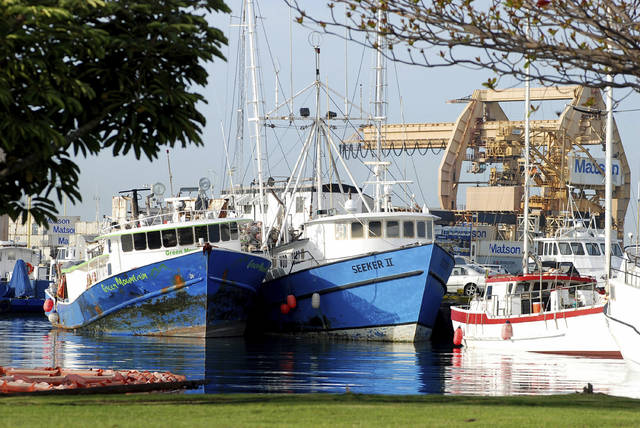HONOLULU — Another Hawaii bill that sought more oversight of the state’s commercial fishing industry is dying. ADVERTISING HONOLULU — Another Hawaii bill that sought more oversight of the state’s commercial fishing industry is dying. The bill would have required
HONOLULU — Another Hawaii bill that sought more oversight of the state’s commercial fishing industry is dying.
The bill would have required boat operators to provide contracts between foreign fishermen and employers.
State House Rep. Kaniela Ing said Thursday the bill is dead because it wasn’t scheduled for a final committee hearing before a legislative deadline.
“The lobby was out full force to kill this bill, just as I expected,” Ing said. “It’s difficult because there’s very few advocacy organizations for these sorts of migrant workers, so their voice is not as loud as the moneyed lobby behind the longline guys.”
The Hawaii Longline Association opposed the bill saying it wasn’t the job of the state office that issues fishing licenses to review contracts. They also said the industry is already highly regulated by the federal government.
A related bill to restrict fishing licenses to people legally allowed to enter the country and to make potential licensees apply in person died Wednesday.
An Associated Press investigation found hundreds of foreign fishermen confined to boats and some living in subpar conditions. It also found some instances when fishermen weren’t paid as promised.
Both bills aimed to find ways to get more information about what’s happening on the boats and to catch potential problems.
Having copies of fishermen’s contracts would help the state determine whether the men are getting what they’re promised and whether a human trafficking investigation should be launched, Ing said. But contracts with foreign fishermen are often held by overseas companies, making them difficult to obtain. Boat captains often contract with an international broker to provide workers, and then the broker has a separate employment contract with the workers.
The longline industry also created its own universal contract to be signed by crew members and boat owners and said many boat owners have returned the contract. The industry contract includes space to record payments made and a phone number fishermen can call if they’re victims of human trafficking. But critics say it’s ineffective to have the industry police itself.
Ing says he’s surprised at the strong opposition to his bill. “I was only asking for record keeping,” he said. “I wasn’t even asking for regulation.”
Ing said he would attempt to resurrect the bill by adding it as an amendment to another bill later in the session.




